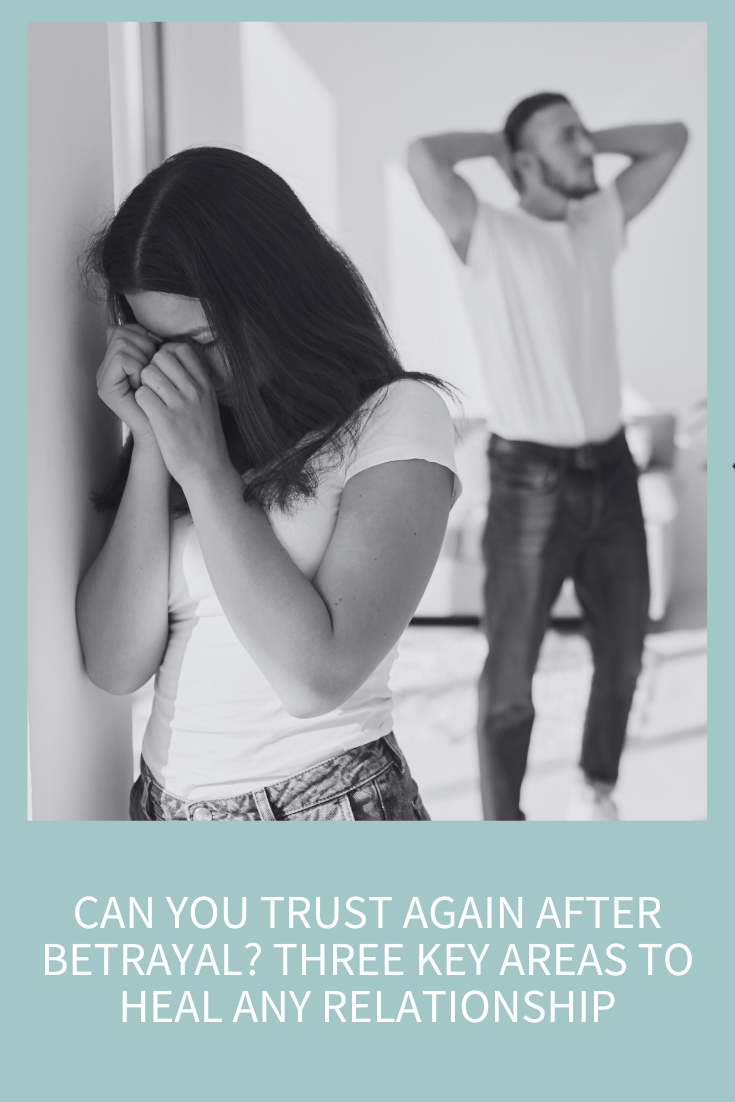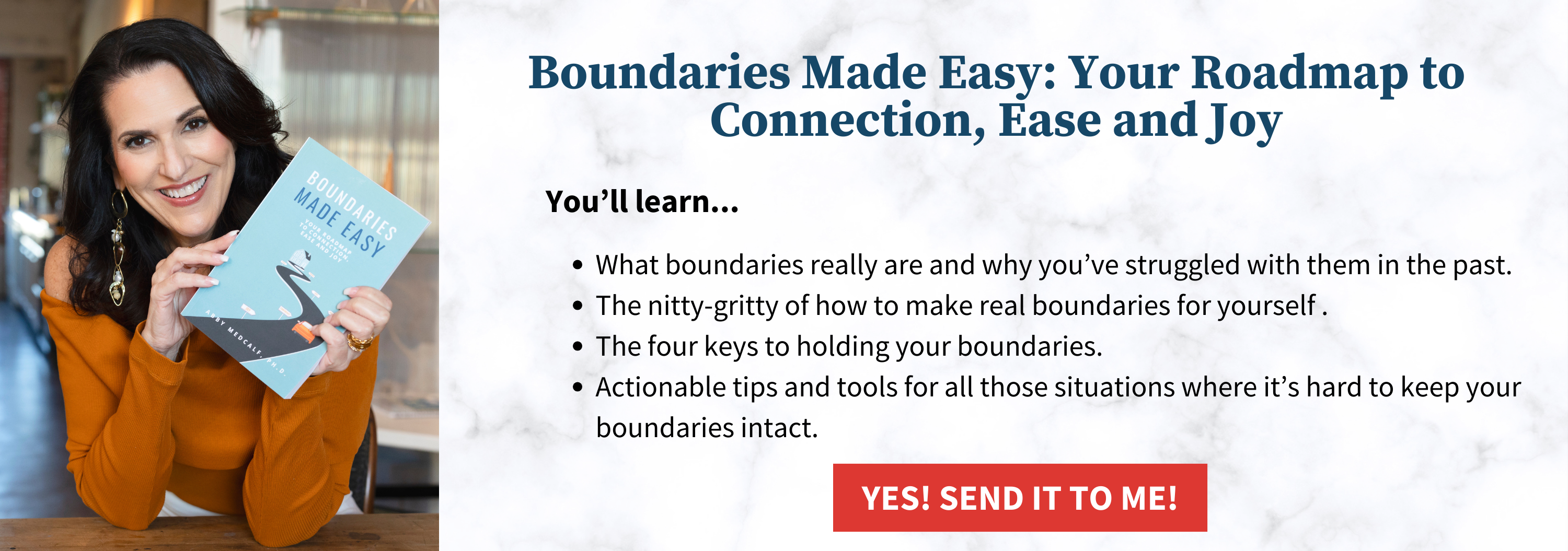
While a partner cheating might seem like the most obvious betrayal in a relationship, there are actually many ways we can feel let down or deceived in different types of relationships. Maybe your mom didn’t tell you about your dad’s cancer until the very end. Or maybe your partner lied about money or their past. Or maybe you just found out that your so-called best friend has been telling everyone things you told them in confidence. Whether it’s cheating, lying, or being let down in another way, the big question is, “Can I ever trust this person again? Can this relationship be repaired?” The answer lies in three big areas, which we’ll talk about today, and by the end, you’ll be able to answer this question for yourself.
6-minute read
The Big Three
There are three areas to take into consideration when you’re wondering if you can heal a relationship after a significant betrayal: The person who betrayed you, the state of your relationship before this betrayal, and who you are in this situation.
I. The Person Who Betrayed You
We all have different personality traits and personal ways of being in the world. From this perspective, cheating, lying, or deceiving you in some way can relate to an addictive or impulsive/compulsive disposition, an entitled sense of the world, a dysfunctional upbringing, or simply a general lack of self-awareness.
Here are the areas you want to look at when it comes to this other person:
- First and foremost, did they sincerely apologize? Apologies, when done right, have an almost magical power. Not only can they defuse and neutralize anger, resentment, and a full head-of-steam in an instant, but they also create an immediate emotional connection where there was animosity and hurt just a moment before. An apology can’t undo something hurtful but, when done right, it can greatly minimize the negative effects of those actions and move your relationship forward. And get this: research shows that an apology actually affects the person receiving it physically. Their blood pressure decreases, and their breathing becomes steadier as their heart rate slows. This is huge because it means that their apology will turn off your fight/flight/or freeze brain and turn on your compassionate, loving brain so you can have some real dialogues.
- Are they willing to take some self-reflective action? And I don’t just mean something like, “I’ve left that job, so I won’t see the person I cheated with again.” That’s nice, but you’ll need more.
- If this has happened before, what are they planning to do differently this time?
- How are they seeing this as a wake-up call?
- Are they acting defensively or with openness?
- If they say they take responsibility, how are they showing that? You’re looking for someone to walk the walk, not talk the talk.
- Is there an “aha” moment they can articulate? And can they express any aha moments about what happened that don’t involve you or other excuses (“Well, we hadn’t had sex in months,” or “You never expressly said I needed to keep what you shared a secret” or “I was having a hard time when I did that”).
When the person who betrayed you doesn’t remember what happened or can’t say why they did what they did at all, they’re letting you know they are profoundly un-self-aware and need to work on this in a directed, clear, prioritized way. They need to take some real action to become more self-aware and less impulsive for you to trust them moving forward.
II. The Relationship Before the Betrayal
When I say what I’m about to say, I in no way mean that it’s your fault if your partner cheated or if your best friend lied to you about the fact that he was talking shit about you behind your back!
What I do want to say is that in any adult relationship, there’s a way the relationship had been going where there were warning signs or issues that brought you all to this place. This includes poor communication, prolonged fighting and conflict, disconnection, leading separate lives, passive-aggressive behavior, nagging, criticizing, codependency, judging or other unhealthy ways of being in the relationship itself. It can also mean that you never had conflict and everything was always great because that’s a problem too. It means you weren’t discussing difficult topics, and issues were going underground.
When we’re talking about betrayals with partners or friends, I often notice signs of trauma bonding. Trauma bonding is basically a dysfunctional attachment you have in that relationship. Trauma bonding gets hard-wired, so it lives in your nervous system, creating a hijacking of sorts. Because of your particular childhood, your brain has made neural associations between love and unhealthy behavior, and you end up with people who aren’t the best fit for you but feel unable to let them go!
Trauma bonding does not mean that you’re bonding with another person over some shared trauma. Instead, it speaks to a bond that a survivor of some kind of dysfunction feels towards another person.
I want you to think about how you co-created this relationship and where it stood before this event or events. Is there something solid there to work from? Is there something healthy that you can leverage to work towards a relationship filled with ease, trust, and joy?
Are you willing to do some therapy together? I believe it’s important for all parties to do their own therapy individually when it comes to big betrayals, but after some individual work, it can be very helpful to do a few sessions together.
III. Who You Are in All This
The last variable is, of course, you and what you need and bring to the table at this particular point in your life. There are a few questions and areas to think about:
- Where is your mental health right now as you’re dealing with this? Do you feel strong and like you’re making healthy decisions for yourself?
- Related to this, where’s your self-esteem at right now? Does any part of you feel like you deserve what happened or that it was your fault? Is this related to your own childhood dysfunction and what you think you deserve?
- The biggie to identify is your boundaries. What have your boundaries been with this person? If this has happened before, what are you planning to do differently this time? Have you set clear expectations with this person and followed through? Remember, it’s not a boundary unless there’s a response that you take if what you ask for isn’t respected.
- Is this a pattern with the people in your life in some way where you feel let down or betrayed? Where is your own therapy at?
Wrap Up
At the end of the day, a clear betrayal is a wake-up call in your relationship. It means something has to change. It does not mean that you have no choice but to leave your partner, or cut off your best friend, or only speak to your mom during the holidays.
It does mean that it’s time to have some real conversations and get clear about next steps (which might include everything I just mentioned, but there’s a healthy way to cut people off, and you want to make sure you’re going about this the best way.). You can’t keep doing what you’ve been doing. You’ve got to do new things if you want a new relationship.
Resources for Can You Trust Again After Betrayal? Three Key Areas to Heal Any Relationship
How to Apologize for Real and Why It’s So Hard
Four Ways to Be More Self-Aware
Are You Trauma Bonding in Your Relationships and Don’t Realize It
How Your Attachment Style Affects Your Personal Relationships
Is There a Healthy Way to Cut People Off
Episodes related to cheating:
Can You Ever Trust Your Partner Again If They Cheated?








